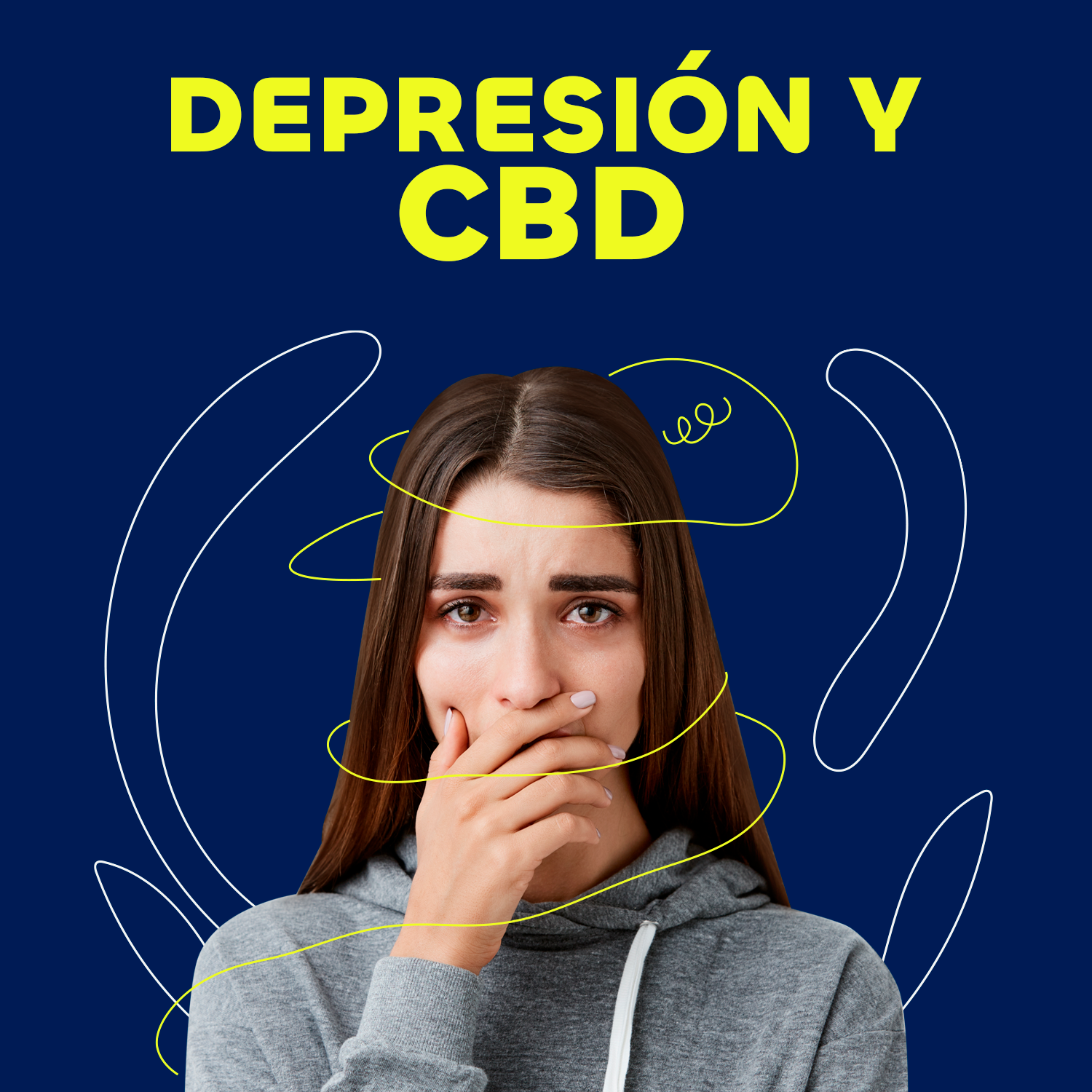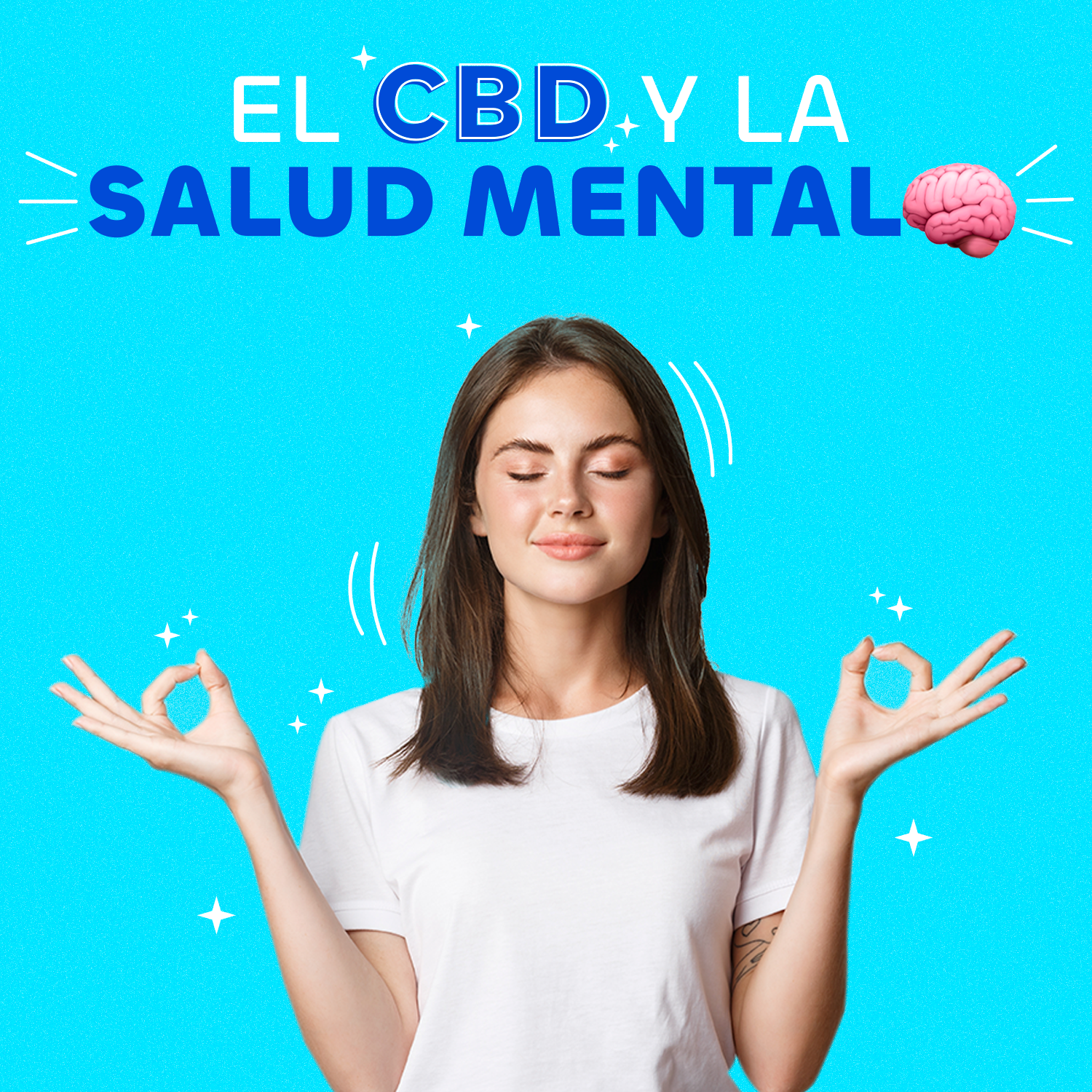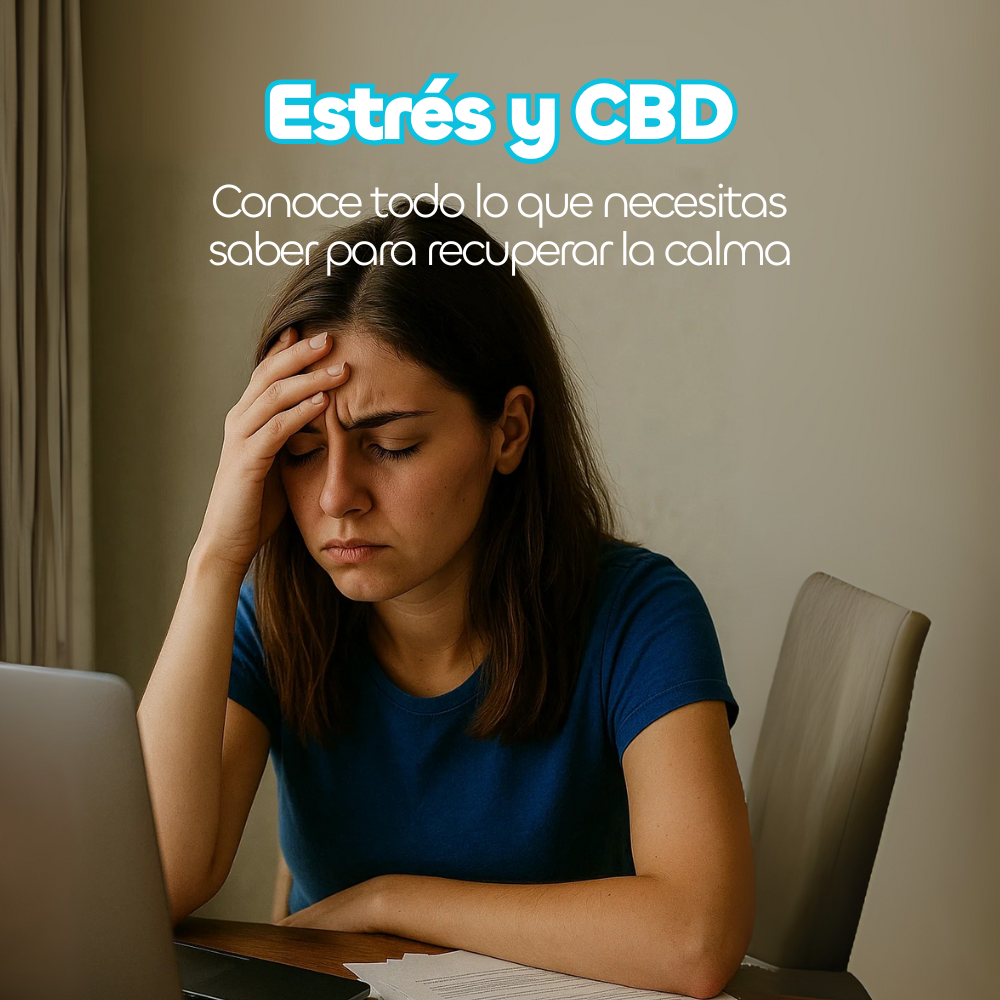Depression and CBD

The great paradox of the 21st century is that although most daily tasks are much simpler than in the past, emotional stress, on the contrary, seems to become more complex. After the 2020 health crisis, there has been much talk of a "silent pandemic" that threatens our mental health, mainly due to the high rates of stress, anxiety, and depression among the population.
In Mexico, depression is a reality in the lives of more and more people. In our country alone, 3.6 million adults suffer from depression ( Psychiatric Care Services of the Ministry of Health, 2021 ). According to data from the UNAM (National Autonomous University of Mexico ), the number of Mexican youth between the ages of 12 and 24 with depression is approximately 2.5 million, and 9.9 out of every 100,000 have developed suicidal thoughts at some point . Depression is a public health problem worth discussing.
But… what is depression?
Sadness, depression, and a loss of interest or pleasure in daily activities are familiar feelings for everyone. But if these feelings persist and substantially affect our lives, the problem may be depression .
It is a mood disorder that involves a persistent feeling of sadness and loss of interest. It is different from the mood swings people routinely experience as part of life. Depression is an ongoing, not temporary, problem. It consists of episodes during which symptoms last at least two weeks. It can last for several weeks, months, or even years.
What are the causes of depression?
The medical community still does not fully understand the causes of depression. There are many possible causes, and sometimes several factors combine to trigger symptoms. Factors that may influence this include:
- Genetic characteristics
- Changes in brain neurotransmitter levels
- Environmental factors
- Psychological and social factors
- Other conditions, such as bipolar disorder
Symptoms of depression
These are some warning signs that may be symptoms of depression :
- Feelings of sadness, desire to cry, emptiness or hopelessness.
- Outbursts of anger, irritability, or frustration, even over issues that were previously easily manageable.
- Loss of interest or pleasure in most or all usual activities, such as sexual intercourse, hobbies, or social interactions.
- Sleep disturbances, such as insomnia or sleeping too much.
- Tiredness and lack of energy, so even small activities require greater effort.
- Lack of appetite and weight loss, or conversely, insatiable food cravings and weight gain.
- Anxiety, agitation or restlessness.
- Slowness in reasoning, speaking and making body movements.
- Feelings of worthlessness or guilt, excessive fixation on failures.
- Difficulty thinking, concentrating, making decisions, and remembering things.
- Frequent thoughts about death, suicidal thoughts, suicide attempts, or suicide.
- Unexplained physical problems, such as back pain or headaches.
Attention! If you think you or someone close to you is experiencing several of the symptoms mentioned above, it's important to seek prompt consultation with a mental health specialist for professional support and personalized treatment.
Does depression have a cure?
Unfortunately, no cure for depression has yet been found . However, there are increasingly more effective treatments that help with recovery. The earlier a diagnosis is made and treatment begins, the more successful it can be.
Many people with depression recover after following a treatment plan. However, even with effective treatment, relapse is a possibility.
To prevent a relapse, it is important to continue the treatment prescribed by your doctor, even after symptoms improve or disappear.
Find below some helpful tips to help you get through this stage:
What can I do if I have depression?
It is possible to find relief and regain emotional peace. Here are some effective strategies recommended by psychologists for coping with depression:
- Seek professional help: A psychologist or psychiatrist can offer the support you need to understand and treat your depression. Don't hesitate to seek specialized help, preferably at the earliest stage of symptoms.
- Establish a daily routine: Regular habits can give you a sense of stability and control. Set schedules for sleeping, eating, working, and engaging in pleasurable activities.
- Exercise regularly: Physical activity releases endorphins, chemicals that improve mood. Try to incorporate at least 30 minutes of your favorite exercise into your daily routine.
- Set achievable goals: Set small, realistic goals and celebrate your achievements. Steady progress will motivate you and boost your self-esteem.
- Identify and challenge your negative thoughts: Depression is associated with negative thought patterns. Challenge your negative beliefs and try to replace them with positive, hopeful thoughts. If you need support, a psychologist can help you gradually change your mental structure.
- Maintain social connections: Depression can be isolating, but social support is essential. Seek frequent contact with friends and family and consider joining support groups.
- Take care of your physical health: Good nutrition, adequate rest, and avoiding excessive alcohol and drug use can improve your overall well-being.
- Natural alternatives: Working with your doctor, it's worth incorporating supplements and natural alternatives into your routine to help you improve your physical and mental performance. One of the increasingly studied supplements is CBD .
What is CBD?
Cannabidiol, or CBD , is a therapeutic cannabinoid found in all varieties of cannabis plants. It has captured the attention of many around the world thanks to its proven health benefits. Although it is found in all varieties of cannabis, it is essential to understand its multifaceted composition, composed of cannabinoids that work in harmony to provide diverse therapeutic effects.
According to various studies, CBD can be of great help in treating the following mental illnesses:
- Anxiety
- Depression
- Insomnia
- Post-traumatic stress
- Schizophrenia
- Other neurodegenerative disorders
- Addictions
How can CBD help with depression?
- Interaction with the endocannabinoid system: CBD interacts with the body's endocannabinoid system, which plays a crucial role in regulating various physiological functions, including mood and sleep. CBD has been observed to affect endocannabinoid system signaling in ways that could have positive impacts on emotional stability.
- Anti-inflammatory and antioxidant properties : CBD has been shown to have anti-inflammatory and antioxidant properties. Chronic inflammation and stress are linked to depression . Due to its composition, CBD may help mitigate these processes.
- Serotonin modulation: Serotonin is a neurotransmitter that plays a key role in mood regulation. Some studies indicate that CBD may influence serotonin receptors, which could have a positive impact on serotonergic function.
- Anxiety reduction: CBD has been shown to have anti-anxiety properties in some studies, which could be relevant for people with depression who also experience anxiety symptoms. Anxiety and depression often coexist, and addressing anxiety may be beneficial in the holistic treatment of depression.
What does scientific research say?
Several research studies have come to valuable conclusions about CBD and depression :
- A 2010 study concluded that CBD demonstrated an antidepressant effect comparable to that of imipramine, a well-known antidepressant. The results of that research were replicated in 2016, when another study also found that CBD could be an effective antidepressant .
- In 2011, a study investigated the role of the endocannabinoid system (ECS) in mitigating depression and also found CBD to be beneficial. This study found that an endocannabinoid deficiency was sufficient to produce a depressive phenotype. Regulating the ECS with CBD was found to be sufficient to produce effects similar to those of conventional antidepressants.
- A 2018study of medical cannabis users asked them to track their symptoms and dosage. The study found that cannabis helped reduce symptoms of depression , anxiety , and stress . Users reported a 50% reduction in depression symptoms. Researchers also found that high CBD (>9.5%) and low THC (<5.5%) produced the greatest improvements in depression .
- A 2019 case study of an adolescent with depression and anxiety disorders due to multiple substance use found that CBD treatment over an 8-week period resulted in a decrease in depressive symptoms. The patient also achieved abstinence from all substances.
What is the best way to take CBD?
In Mexico, CBD is available in several forms, including:
CBD oils are the most common way to consume these products. These oils can be placed under the tongue to fully and quickly obtain their benefits. Gummies are another popular way to take CBD to reduce symptoms of depression .
If you decide to use CBD to cope with depression or anxiety , it's important to consult your doctor first and keep them updated on your use. This way, they can better monitor your treatment or medical therapy and identify what works best for you.
It's okay to try different health alternatives, seek professional help, and make the necessary changes to your routine to feel better. If you've made it this far, we want to tell you that you'll get through this!




Comments